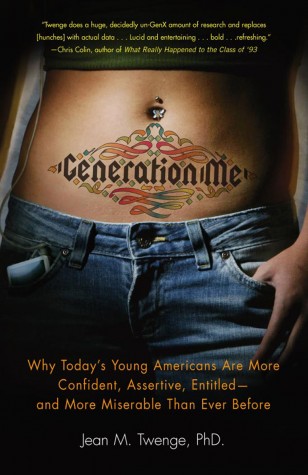Americans are more depressed now than they were decades ago, according to a study conducted in June and released in September by San Diego State professor Jean Twenge.
The results of the study were released in late September to coincide with Twenge’s new edition of her book: “Generation Me: Why Today’s Young Americans are More Confident, Assertive, Entitled — and More Miserable than Ever Before.” The book explores how millennials are changing the U.S. and redefining what it means to be an individual.
According to Twenge’s study, American adoles cents and adults are reporting more symptoms of depression, especially somatic symptoms such as having trouble sleeping, remembering, thinking and shortness of breath.
cents and adults are reporting more symptoms of depression, especially somatic symptoms such as having trouble sleeping, remembering, thinking and shortness of breath.
Twenge analyzed 6.9 million people across four studies of different age groups, decades and databases.
“It seemed important to try to find data that was concurrent and that had nothing to do with being diagnosed or being prescribed a drug,” Twenge said.
In one of her studies, high school students in 2010 reported having more trouble sleeping and difficulty concentrating than in the ‘80s. College students in recent studies have also reported feeling more overwhelmed, according to another of Twenge’s studies. She also studied generational differences and how cultural change affects people.
Twenge attributes some of the results to cultural change and trends.
“We have this modern idea that it’s weak to need other people,” Twenge said. “That’s not really true — if you need other people you’re human, but individualism assumes that we don’t need anyone else and that’s not really true, so that can compromise mental health.”
Although the study determines that Americans are more depressed now, she found through another survey that suicidal idealization, or constant thoughts of suicide, has declined. And in the first study, teens were twice as likely to seek professional help.
When dealing with mild to moderate cases of depression Twenge said natural therapies such as getting enough sleep could be effective.
Stephen Ilardi, a clinical psychologist at the University of Kansas, wrote a book called “The Depression Cure,” which suggests these natural therapies.
“Our bodies were never designed for the sleep-deprived, poorly nourished, frenzied pace of twenty-first century life,” Ilardi wrote.
Twenge said the next step in her research is to continue to study generational differences.












